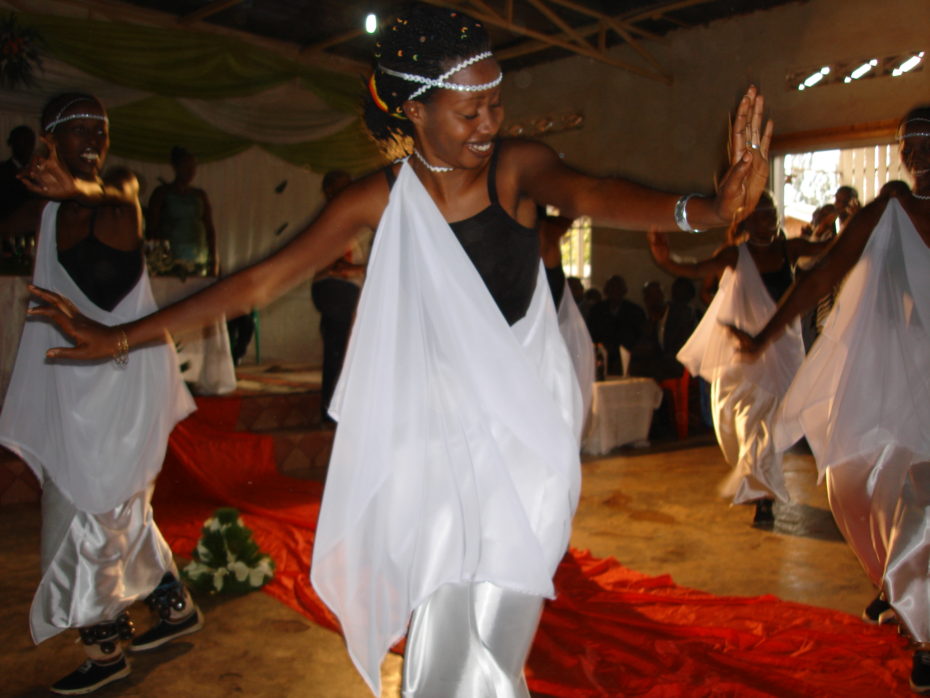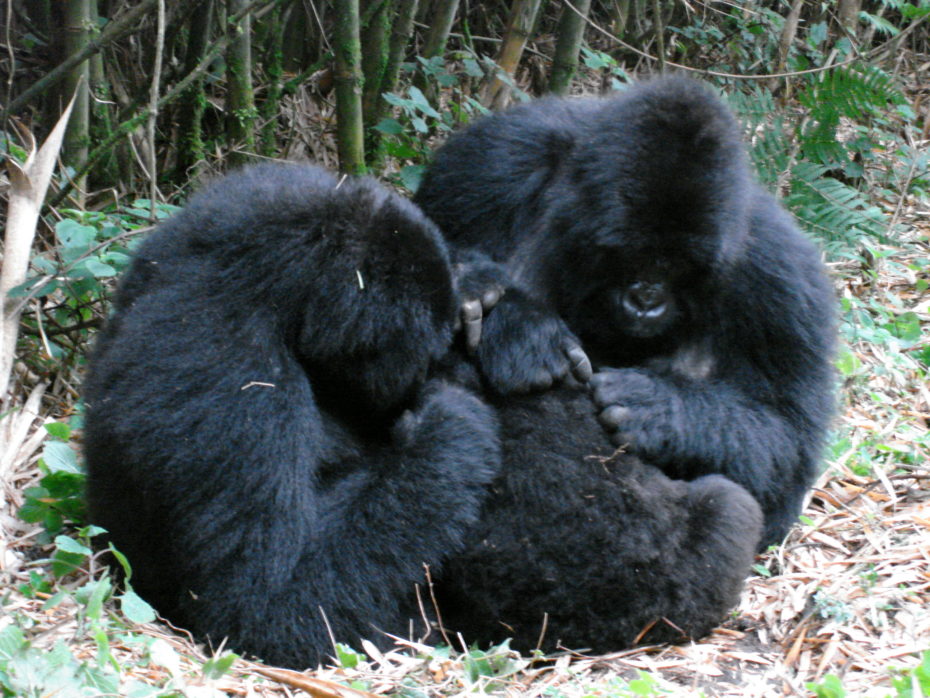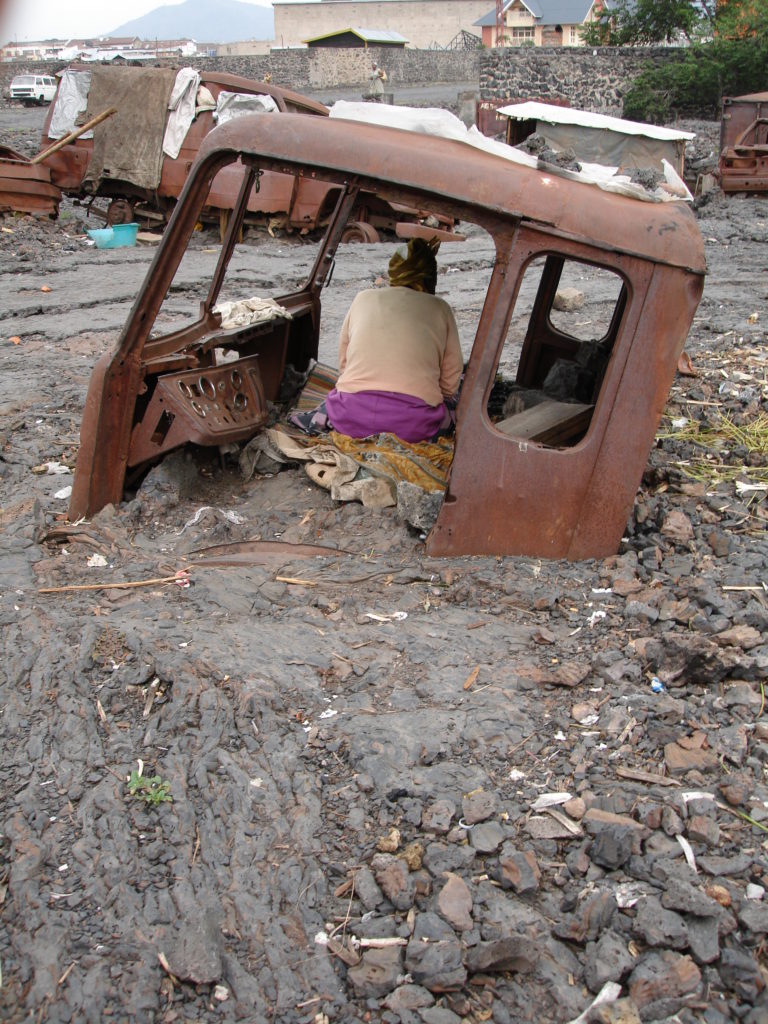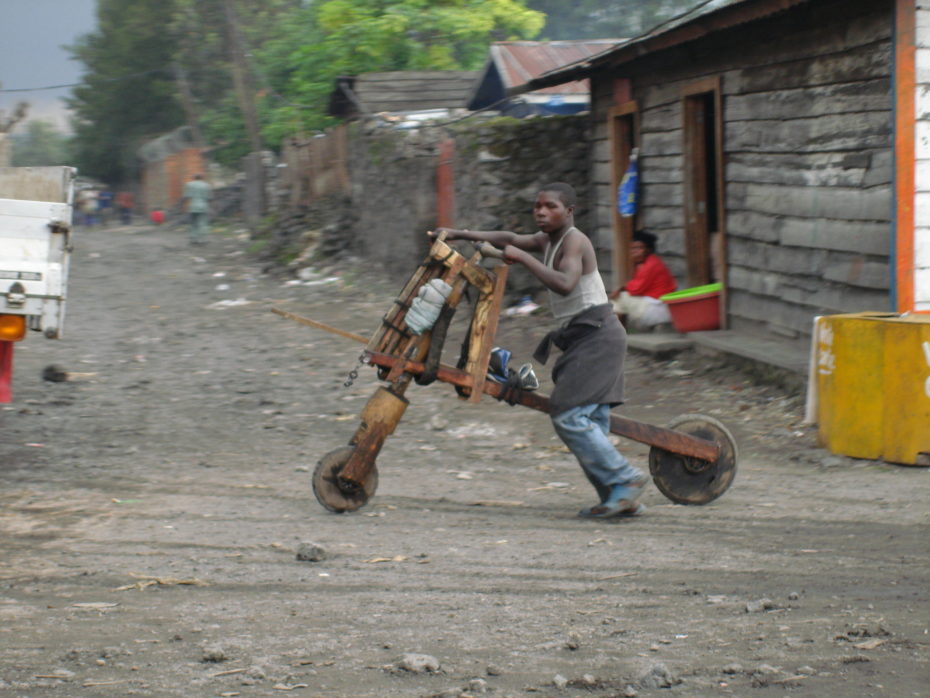When Rwandan friend Chance asked if I would like to accompany him on his first return trip to the country since the genocide I didn’t even waste time thinking about it and just said “yes”. It didn’t take much additional effort to persuade our friends Ash and Chris to join in.
Rwanda will probably mean only one or two things to most of you, i.e.: genocide and mountain gorillas. Both difficult to avoid here, the first for obvious reasons, the latter because the modest tourist industry relies almost entirely on it. It would be easy to dwell on the negative historical aspects on reporting from Rwanda and none of you lack the imagination to have an inkling of the horrors of 1994. But, it’s the positive aspects of the country’s recovery that are truly inspiring. Just walking the streets of Kigali , generally reckoned to be one of the safest capitals in Africa , there is no sense that one of the 20th century’s worst crimes took place such a short time ago. Cheery faces abound, cars that slow down to let you cross the road, none of the sense of tension that Pnomh Penh, home to another of the world’s great genocides had at times and certainly not its ever-present fear of gun crime. Unlike other genocides there is an ongoing process of truth, justice and reconciliation, which, whilst it can never be perfect it gives you faith that in decades to come there will not be the denials which plague the Armenian genocide in Turkey post WW1; the overdue justice of Cambodia where most of the leaders responsible have died; the decades taken to create worthy memorials to the Nazi Holocaust. It is the ability of many to recognize that the only way of moving on is by forgiving many of those who have committed crimes. Remember that those who did not support the massacres were deemed against it, regardless of ethnicity, and suffered the same fate – which lays the ground for separating the organisers and promoters, who must be brought to justice and those caught up in it who can be given the opportunity to show they are worthy of forgiveness.
The Christian messages of forgiveness and love thine enemy are easy words to say but one of the hardest to act upon sincerely, which many here have done. Personally I find the courage of those able to do so infinitely more inspiring than some of the traditional notions of bravery that can boil down to little more than giving young men guns to kill some dark skinned foreigners in the service of our country. Of course others struggle, or refuse to offer forgiveness and I wouldn’t for one moment blame them, I am fairly certain that if I had witnessed friends and family hacked to death with machetes the last thing on my mind would be such charity. The simple impracticality of trying every defendant in a traditional process through the courts, which would have taken decades, led to the formation of Gacaca courts, based on traditional systems, as a means of truth and reconciliation. Of course no system would have been perfect and if you want an overview of the pros and cons you could do a lot worse than checking out the following article http://newint.org/features/web-exclusive/2012/06/15/gacaca-courts-legacy/
If you think you know the meaning of hospitality may I suggest that if you had the opportunity to stay with a Rwandan family as we have you would find your definition lacking. As guests the merest hint of performing a household task is frowned upon. Chance’s mum, a lovely lady of 78, with the craftiest smile is constantly concerned with our welfare and berating Chance for any perceived lack of diligence in the maintenance of hospitality. Admittedly it is impossible for him to convey to her our notions of self reliance and wanting to do a bit for the hosts. Twice a day we were provided with a scrumptious meal of, usually 9 different dishes.
We were lucky enough to be invited along to the wedding of Chance’s nephew – well one of the many, as families are typically large. With at least 150 guests it was described as rather modest in size. Also in Africa its worth remembering that the terms for family members are somewhat elastic and often don’t actually demand a blood relationship. The day consisted of three parts, the first being the state requirement of a Christian church wedding, not dissimilar to a British one with three differences in particular: a ridiculously obtrusive video team; no requirement to turn off mobile phones, leading to a regular chorus of ring tones and their owners strolling back down the aisle to chat away outside; the choir does the singing not the congregation, their joyous, uplifting voices making English efforts sound funereal. Phase 2, the African part, involved even more people in a hall with traditional dancers, singing and drumming, followed by numerous ceremonies cementing the relationship between the two families as well and the bride and groom. Given our status of only having met the groom four days previously we would have been quite happy being stuck on packing crates at the back but, true to local hospitality we were given front row seats. This treatment continued in phase 3, a smaller family affair back at the couple’s home, where we were ushered into a little room for two special family ceremonies:- the feeding of milk to two children to symbolise the fertility of the marriage (cows being one of the most integral parts of Rwandan culture gives milk its symbolic status); the presentation of gifts of food to sustain the couple through the first month of marriage. On both occasions there were only a handful of the many guests allowed in the rooms so we felt especially privileged.
The night finished in a fashion more familiar to you younger British readers at Kigali ’s top nightclub – Cadillac. It’s here that I have to apologise to older readers and those unfamiliar with clubbing phraseology as it is impossible to describe the scene without resorting to current terminology so please use your imagination. As the music veered from Congolese soukous, bass heavy reggaeton to Brittney Spears and onto Jamaican Dancehall the booty shakin crowd were windin’ and a grindin’ in the kind of fashion that made a Snoop Dog video look like an afternoon tea dance. My legs lasted til around 4 30 – even a modest approximation of local dancing styles is a major strain on the thighs. Mind you I must dance like a girl judging by the attention I got from men as well as women. Africans who try to tell you that homosexuality is unafrican obviously never go to nightclubs with middle aged white men.
Our second week was based around a trip to see the mountain gorillas in the Virungas national park in the North of the country. This area of mostly inactive volcanoes has a deep fertile soil providing the mass of local smallholdings with the most unbelievably prodigious crops of bananas, cassava, sweet potatoes, papaya and other edible delights. Any trek up into the national park is accompanied by a couple of soldiers, presumably to protect the country’s tourist investment – gorillas have been poached in the past and without them the tourists would wither to a few hardy backpackers.
We encountered a family group of about 15 who seemed to be completely unconcerned by our presence, the 7m separation distance requirement is immediately binned as some stroll past me within hands reach, though contact is strictly forbidden as they are susceptible to human ailments. An hour spent watching their docile lolloping, scratching, snoring and farting was enthralling. As the adults relaxed, the babies expertly swung around in the higher reaches of the bamboo groves. A peerless wildlife experience, as it almost certainly says in a guidebook somewhere.
A couple of days in the lakeside town of Gisenyi, which is the premier tourist resort for Rwandans, gives an indication of progress yet to be made in the country: conspicuous signs of wealth for some are contrasted by the fact that you need a 4×4 to negotiate half the roads in the town. However the words “striking contrast” do not come close to preparing you for a day trip to the neighbouring town in the Congo, Goma. First to give you a flavour, a few facts about the Congo: 10 years of war have led to over 5 million deaths through fighting, disease and malnutrition; now with relative peace thousands are dying each month; conservative estimates of 60 rapes a day in the region give some idea of the brutality of existence – how often do you hear a mention of it on the news? Never mind Iraq, the international community’s ineffectual dithering in the Congo can only be described as shameful. And don’t think it’s got nothing to do with you: one of the reasons your mobile phones and computers are so cheap is due to the coltan and cassiterite ore which they require are looted from the country with no benefit to its people.
So, back to Goma, the only place more derelict I’ve seen was Bam in Iran which was flattened by an earthquake; the abject dilapidation was intensified by the local volcano rather inconveniently deciding to park its lava in the middle of the town 8 years ago; grubby families shelter in the scorched wrecks of trucks encased in lava flows amongst half buried houses, whose occupants have relocated to the top floor. Enterprising souls run businesses from shacks of wood, corrugated iron, mud and plastic. I have never before felt so much as partaking in such a voyeuristic, cheap holiday in other people’s misery. But, let me assure you there are worse places to live in Eastern Congo .
Our visit started in true Congolese style with a bit of border post corruption (our connection arranged a “discount” on the visa fee) followed by a swift swerve to surreality as we were given a guided tour of a cassiterite processing business run by one of Chance’s relations, portrayed the previous week on a CNN expose of mineral ore exploitation in the Congo – whereas the reporter struggled to gain information and the camera was ushered off the premises, we were happily furnished with facts, figures and costs for anything we asked. A ride through the short step from hell on earth vision that was the town led us to a luxury restaurant in immaculate gardens by the lake where the president Joseph Kabila was having lunch, it didn’t seem necessary for anyone to check who we were or what we were doing as would seem customary for a presidential visit, particularly as our driver had a pistol under his jacket. We departed swiftly in favour of more a typical Congolese lunch, though I am not sure my guts were quite so enamoured with the goat entrails I tasted.
I suppose I’d better spare you any more misery because it’s the last thing I’d want you to associate Rwanda with. The novelty of white people here is still sufficient to elicit calls of “muzungu” (the regional, Swahili word for white person) with much hilarity but without the negative connotations a shout of, “Oi black man! ” would have at home. It would seem to me that in sub Saharan Africa, a land by and large devoid of the usual ancient monuments that mark out tourist itineraries, it is the social interactions which make a visit here special, at least as much as the awesome scenery and abundant wildlife. It is on the street that much of daily life occurs, with transport beyond the means of many. Loads are borne on heads from a simple pot of cream or umbrella to huge bags of charcoal or an unfeasibly tall stack of foam mattresses. Work, rest and play go on by the roadside: dusty labourers stagger under sacks of cassava flour; neatly uniformed school kids hail a breezy “bonjour” or hide their shy smiles behind their hands; elegant ladies in vividly multi coloured dresses and headgear, defying the colour of the water they are washed in, parade by the plethora of hairdressers – surely more than the economy can support; crisply suited old men chat with their peers while their t-shirt clad youngers crowd around any available television to watch the latest football match in the Africa Cup; all as crumpled mini buses speed by emblazoned with mis-spelt praises to God or Manchester United.
Come to Africa, sit and watch the world go by.








